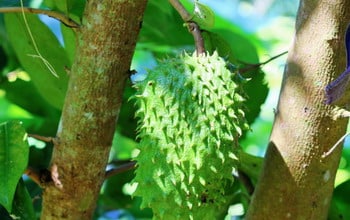- Have a question?
- 1300 99 77 65
Soursop Vitamins and Minerals

Soursop and Graviola – Are they the same?
06/11/2021Soursop Vitamins
Calories, Fat & Carbohydrates.
As per the sustenance realities information source Healthaliciousness, a 100-gram of soursop comprises of under 1 gram of fat with the tea and leaves at 0 calories per 250-gram cup. Soursop has essentially 17 grams of carbs per serving when differentiated to the 15 grams exhorted for individuals just as females on low-carb diet plan plans. Soursop is loaded with nutrients and supplements. It has a lot of nutrients C, B1, and B12. It additionally has a great deal of starch in it.
Soursop Vitamins
Soursop Vitamins, having vitamin C result of 20.6 milligrams, a contribution of soursop materials undeniably more than 33% of your DV for nutrient C. This is still around half of one’s vitamin C of fruit from other sources like oranges, kiwi and mango. Soursop utilizes at least 2 fold the amount of the vitamin C revealed in different natural products like bananas, pears, peaches, apricots, rhubarb, nectarines, plums, apples, grapes, cherries just as pineapple. Soursop is an extra uncommon asset of B nutrients, containing folate, thiamin, and furthermore niacin.
Minerals
A serve of soursop contributes 8% of one’s DV of potassium and furthermore 5 % of your specific DV for magnesium. It is a significant wellspring of phosphorus, iron and furthermore copper. In principle, the soursop natural product or soursop leaves are preferred in these minerals over cherimoyas and oranges. The Soursop or Graviola fruit provides 1 gram of protein as well as 3.3 grams of nutritional fibre within each offering.
Soursop leaves are almost twice as strong as the soursop fruit but nonetheless, the soursop fruit is also a very enjoyable way to have your soursop.
Summing up the vitamins and nutrients in soursop make this a great choice rather than the regular task of taking vitamin tablets daily.





2 Comments
Hi, is there soursop fruit available for purchase?
Hi Narcisa,
At present we are waiting on our supplier to replenish their stocks which could take a month or so.